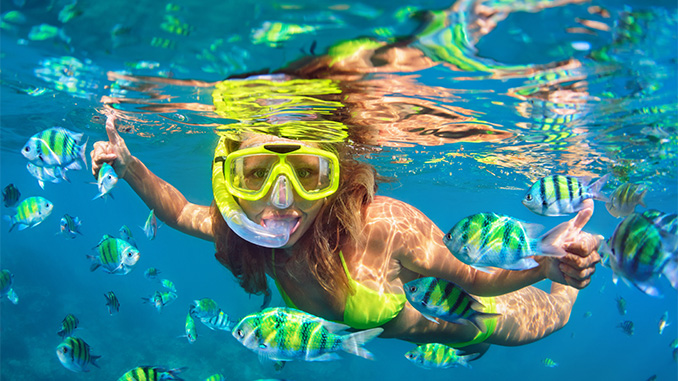
The commercial finance world is all about opportunity—recognizing it, pursuing it, and creating it where others don’t see it. But opportunity isn’t just limited to boardrooms, trade shows, or LinkedIn groups. Sometimes, it’s found 40 feet below the surface, surrounded by coral reefs and the quiet hum of your own breath.
Scuba diving is more than a recreational sport—it’s a lifestyle that combines adventure, personal challenge, and powerful networking opportunities. Whether you’re looking to decompress from a high-pressure deal or connect with high-net-worth clients in an unforgettable setting, diving offers an enriching experience few other hobbies can match.
Certification: How to Get Started
To dive safely and legally, you’ll need to become certified through a recognized scuba training organization. Fortunately, the process is accessible, affordable, and often completed in a matter of weeks.
Major Certification Organizations:
-
PADI (Professional Association of Diving Instructors) – The world’s most recognized scuba certification agency.
-
NAUI (National Association of Underwater Instructors) – A highly respected U.S.-based agency with rigorous training.
-
SSI (Scuba Schools International) – Known for its flexible online training and global network.
-
SDI (Scuba Diving International) – Focused on modern training techniques and technical diving options.
Basic Path to Certification:
-
Online or classroom study – Learn diving theory, safety, and equipment usage.
-
Confined water dives – Practice skills in a pool with an instructor.
-
Open water dives – Complete 4–5 dives in a real-world environment (lakes, quarries, or oceans).
-
Certification – Once complete, you’ll receive a lifetime certification card allowing you to rent gear and dive globally.
Most beginner courses cost $400–$700, including instruction, equipment, and certification.
Local Dive Clubs & Ongoing Training
Once certified, you’re not on your own. There are active scuba communities almost everywhere.
Dive Clubs & Local Networks
-
Most cities have PADI Dive Centers or affiliated clubs that host regular dive trips, social events, and gear swaps.
-
These clubs often include professionals, business owners, and retirees, making them natural venues for soft networking.
-
Many dive shops maintain email lists and private Facebook groups where you can connect with others.
Continuing Education
You can grow your skillset with additional certifications:
-
Advanced Open Water Diver
-
Rescue Diver
-
Divemaster (for those who want to go pro)
-
Specialties like night diving, wreck diving, underwater photography, or nitrox (enriched air)
Ongoing training not only builds your skills—it gives you more reasons to dive and travel.
Vacation Destinations & Dive Travel
Scuba diving naturally integrates with exceptional travel experiences. As a certified diver, you’ll gain access to a world of destinations designed around adventure, relaxation, and community.
Top Global Dive Destinations:
-
Cozumel, Mexico – Clear waters, vibrant reefs, and affordable resorts
-
Bonaire (Caribbean Netherlands) – Known as the shore diving capital of the world
-
Florida Keys, USA – Wreck dives, marine parks, and easy access for U.S. travelers
-
Roatán, Honduras – Great for beginners and budget-friendly luxury
-
Red Sea (Egypt) – Stunning coral walls, exotic marine life, and cultural tours
-
Maldives, Thailand, Indonesia – Ideal for liveaboards (dive cruises) with world-class marine biodiversity
Dive resorts often feature group packages, concierge gear service, and social events, creating the perfect atmosphere for bonding with fellow travelers—many of whom are professionals, executives, and even potential clients.
Networking in Neoprene
Scuba diving may not be an obvious business development tool, but for commercial finance professionals, it creates the perfect context to build relationships organically:
-
Small dive groups (6–8 people) encourage deep conversations.
-
The shared challenge and trust involved in diving naturally creates rapport.
-
Many corporate execs, entrepreneurs, and wealth managers dive regularly.
A 30-minute conversation on a dive boat often leads to more trust than 10 emails in a sales funnel.
Joining a dive club or participating in group travel dives can help you build referral relationships, uncover new leads, or just meet like-minded professionals.
Mental Clarity and Stress Relief
Diving also offers personal benefits essential to any broker or consultant:
-
Total disconnection from devices
-
Focused breathing and mindfulness
-
A complete break from deal flow, screens, and notifications
It’s a form of meditation—but surrounded by sea turtles and shipwrecks.
For brokers and consultants looking to combine personal growth with professional opportunity, scuba diving is the ultimate lifestyle hobby. It offers:
-
Physical and mental benefits
-
A built-in community of global professionals
-
Travel experiences that double as client or referral-building opportunities
-
A chance to develop new skills and confidence in and out of the water
If you’re looking to recharge your life—and maybe even reboot your network—now is the perfect time to dive in.

